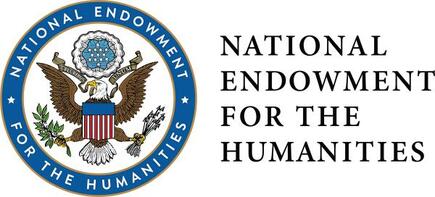Rethinking the Gilded Age and Progressivisms:
Race, Capitalism, and Democracy,
1877 to 1920
|
Registration for our FREE Virtual Conference "A More Perfect Union: Exploring America's Story in the Gilded Age and Progressive Era" is now open! Join us on June 17, 2024, to learn from distinguished historians, featured resource providers, and classroom teachers. Illinois teachers will earn ISBE professional development credit hours. Non-Illinois teachers will receive a certificate of completion. Check out the conference schedule and RSVP today!
The 2023 NEH Summer Institute "Rethinking the Gilded Age and Progressivisms" has now concluded. We retain the information on this page for background knowledge about the program.
Some say we live in a second “Gilded Age" full of "populist" politicians and "progressive" activists. Why does this history—the issues, events, and personalities of more than a century ago—still matter so much? We invite K-12 teachers to come to Chicago to attend an NEH Summer Institute for school teachers. Participants engage in intimate seminar-style sessions with leading historians as well as take guided excursions around Chicago each week during the institute. There are also "Applications to Teaching" sessions where Scholars work with master teachers to develop classroom materials. Participants earn a $2,850 stipend to help defray costs. Teachers will explore new ways to look at the Gilded Age and Progressive Era. We will investigate a wide variety of historical—and historiographical—matters. Our focus will be on three important themes of American history–race, capitalism, and democracy—because, arguably, the most important economic and political institutions of modern America originated and took shape during the period from 1877 to 1920. New imaginings and definitions of race and its role in society played out in profound ways on the local and national stage. Our institute is rich in the humanities generally, with significant exploration of art, architecture, music, film, and literature. Organized by the Chicago History Museum, Loyola University Chicago, and the University of Illinois Chicago, K-12 teachers can apply for “Rethinking the Gilded Age and Progressivisms: Race, Capitalism, and Democracy, 1877 to 1920.” Our NEH Summer Scholars will spend three weeks in Chicago, a center of Progressive Era reform, engaging in vigorous discussions about this critical time period in American history and creating materials to use in their classrooms. We are committed to building a diverse team of participants, reflecting a range of disciplines, grade levels, and regions of the country. Award-winning historian Robert Johnston (University of Illinois Chicago) will guide the institute’s academic content, with the help of renowned experts in history, art, and architecture. Crystal Johnson (Chicago History Museum) and Charles Tocci (Loyola University Chicago) will co-direct the institute. Mike Biondo (Maine South High School) and Johanna Heppeler (East Leyden High School) will serve as the director of teacher supports and the master teacher, respectively, to help Summer Scholars craft classroom materials out of their institute experiences. We will hold an applicant webinar Q&A on Thursday, January 12, at 7:00 p.m. Central. Please add your name to the sign-up form in the sidebar to be added to the distribution list for announcements about this event and the application process. If you use screen reading software, have trouble with reliable Internet access, or prefer reading about the Institute in letter format, you may learn more about the Institute's content and application procedures in our Letter from the Directors. Applications close on March 3, 2023. Applicants will be notified on April 3, 2023, about their selection status. The deadline for selected applicants to accept or decline the offer is April 14, 2023. |
SAVE THE DATE!Virtual Conference
Monday, June 17, 2024 A More Perfect Union: Exploring America’s Story in the Gilded Age and Progressive Era
Featured Speakers: Marcia Chatelain Deborah Kang Jonathan Zimmerman NEH-GAPE Teacher Alumni Historical Partners Registration details coming soon! This event is free. |
|
The National Endowment for the Humanities: Democracy demands wisdom.
“Rethinking the Gilded Age and Progressivisms: Race, Capitalism, and Democracy, 1877 to 1920” has been made possible by a grant from the National Endowment for the Humanities Summer Institute for K-12 Educators program. Any views, findings, conclusions, or recommendations expressed in this program do not necessarily represent those of the National Endowment for the Humanities. |
|



